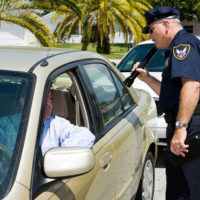Challenging Circumstantial Evidence In DUI Cases

Almost all DUI arrests start with either an informer’s tip or a traffic stop, except those that involve DUI checkpoints. The prosecutor only needs to establish reasonable suspicion, which is a combination of facts and instincts which indicate that the defendant may have committed a crime. That “crime” could be almost anything, including speeding or driving with a broken taillight.
After the officer pulls over the suspect, in about 20 percent of instances, the driver refuses to provide a chemical sample. In nearly all these cases, the prosecutor must rely almost exclusively on the field tests. Like the circumstantial evidence used to justify a stop, the field test results are subject to interpretation, and the jury’s conclusion is the only one that counts.
The Stop
There is no hard-and-fast rule regarding tips, as the Supreme Court has authorized judges to evaluate the tip’s reliability based on the totality of the circumstances. Some of the factors in this analysis include:
- Time: Information about moving vehicles and intoxicated motorists is probably invalid if officers do not respond within a few minutes, or maybe even within a few seconds.
- Source: A tip from a fellow officer, such as a radio dispatch call, is almost always reliable, while an anonymous tip comes with a very big question mark.
- Specificity: If the officer has information about the vehicle’s make, model, color, and location, the officer is more likely to pull over the correct vehicle.
Prosecutors cannot work backwards in this area and argue that since the officer pulled over the correct defendant, the tip must have been reliable.
While tips mostly contain objective information, personal observation stops are nearly always based on subjective evidence. For example, if an officer stops a car for speeding and detects an odor of alcohol when s/he contacts the driver, the officer almost always says that odor is evidence of intoxication. But in fact, an odor of alcohol coming from the person’s breath only proves consumption, and an odor emanating from the driver’s clothes or from the inside of the car only proves that the driver had been in contact with someone who had been drinking.
The Field Tests
“Beyond a reasonable doubt” is a much higher standard that reasonable suspicion or even probable cause, and that is the standard of proof in criminal court. To meet this high burden, prosecutors can probably only rely on the three approved field tests.
- Walk and Turn: By watching the defendant walk a straight line, the officer can determine both loss of motor skills and mental impairment, if any. However, there is a significant difference between walking an actual line on well-lit, flat, and even ground, and walking an imaginary line in the dark on an uneven surface.
- One Leg Stand: In court, officers often testify that the defendants “failed” this test because they started with the wrong leg or dropped the leg a beat or two too early. But as mentioned earlier, the jury decides whether or not the defendant “passed” or “failed” the OLS and the other two tests.
- Horizontal Gaze Nystagmus: If people cannot follow fixed points with their eyes without moving their heads, that probably means they are intoxicated. This inability also could be related to fatigue, medication, epilepsy, and other conditions.
Officers sometimes administer unapproved field tests as well, such as the finger-to-nose test, but these tests are usually either inadmissible or only admissible for limited purposes.
Contact Tenacious Attorneys
The circumstantial evidence in many DUI cases is rather flimsy when closely scrutinized. For a free consultation with an experienced criminal law attorney in Port St. Lucie, contact Eighmie Law Firm, P.A. Home and jail visits are available.
Resource:
constitutioncenter.org/blog/can-you-be-punished-for-refusing-to-take-a-breath-alcohol-test


